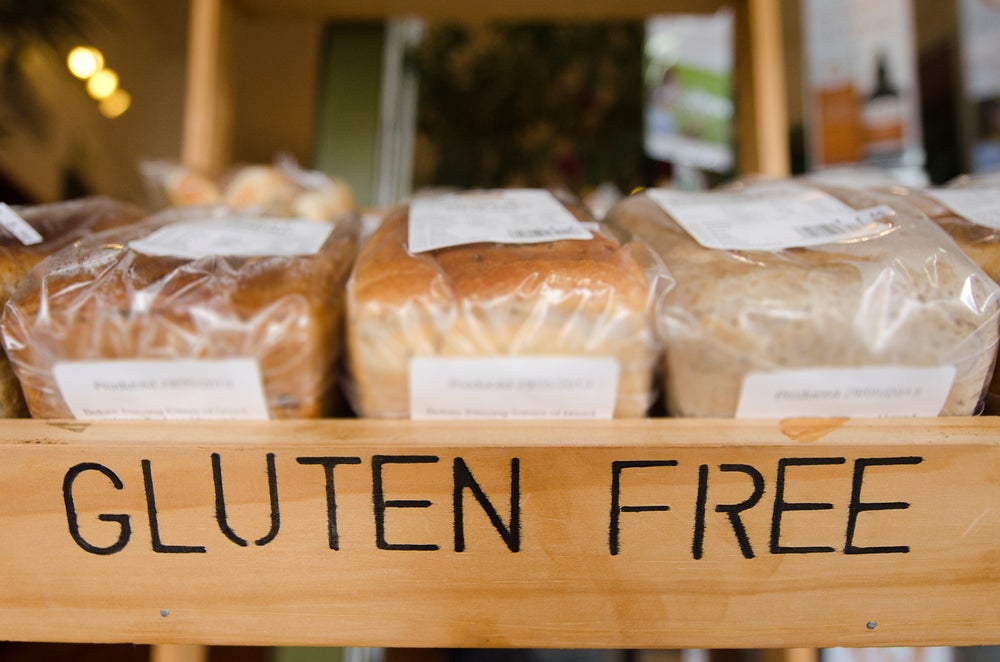Cut The Gluten Without Cutting Corners

Photo: <a href=http://shutterstock.com>Shutterstock.com</a>
A gluten-free diet can be as healthy—or unhealthy—as any other diet.
Q: With the rise of gluten-free athletes, more triathletes’ carbs are coming from corn and rice. What’s your take on cutting out the wheat? —Nick
A: Gluten is a naturally occurring protein found in wheat, barley, rye and even oats that some people are unable to digest. For those with celiac disease, a gluten allergy that leads to an autoimmune response, avoidance of any gluten-containing foods is necessary. However, growing research suggests that more people would benefit from reducing their intake of gluten and/or wheat products (note that there’s a difference between gluten intolerance and wheat intolerance).
This non-celiac gluten intolerance and sensitivity is difficult to diagnose, yet 10–30 percent of people may be affected. Symptoms can include all the unpleasant gastrointestinal and other effects but without the immune antibody markings needed for diagnosis of celiac disease. As this condition gains recognition within the medical profession and the wider public, the marketing of gluten-free foods is on the rise. And athletes are attracted to dietary movements or newly recognized conditions as much as any other population.
A gluten-free diet can be as healthy—or unhealthy—as any other diet. Unless you have a gluten intolerance or sensitivity, it makes little sense to avoid gluten or wheat products just to replace them with gluten-free yet highly processed products. Replacements should be based around whole, real foods. Do not fall into the marketers’ trap of believing that because something is “free” from a particular ingredient that it’s automatically healthy. (The same applies to terms such as trans fat-free, cholesterol-free, etc.) Explore such claims by reading the ingredient list to determine what you are and aren’t eating.
RELATED – Multisport Menu: Hold The Gluten
Anyone whose diet relies heavily on one food source is setting him or herself up for problems. If your average day starts with toast for breakfast, a sandwich for lunch and pasta for dinner, that’s a lot of one food group in 12 or so hours. And whether that food is wheat, corn or rice is less relevant than the fact that you have excluded other nutritious foods. And any diet that includes a lot of packaged food includes vast quantities of corn (read the label).
Individuals with gluten sensitivity might have to avoid significant quantities and should also be wary of eating around times of stress, such as hard training and racing. For true gluten intolerances and celiacs it is important to be diligent. Unpleasant symptoms are really only the tip of the iceberg; irreversible damage can be done to your gastrointestinal tract, setting you up for greater health complications.
Getting adequate carbohydrates is sometimes a concern for people needing or wishing to reduce their intake of grains, and particularly wheat. But there are plenty of healthy, satisfying options beyond bread and pasta—sweet potatoes and yams, quinoa and wild rice, buckwheat and millet just to start. Plus, though they contain gluten, whole-wheat products such as freekah and bulgur are great sources of antioxidants, phytonutrients, protein and fiber—and for non-celiacs, they represent a nutritious source of un- or minimally processed carbohydrates.
The key is taking responsibility for your diet. If you suspect you have a gluten intolerance, get it checked. If you feel subjectively better when you avoid wheat or gluten, then do so. But whatever dietary modifications you follow, make sure you base your intake on whole, real foods and eat a wide variety to maximize your nutrition.
RELATED: A Gluten-Free Energy And Protein Snack
Get the latest in triathlon training, gear, nutrition and news sent straight to your inbox. Sign up for Triathlete’s newsletter.